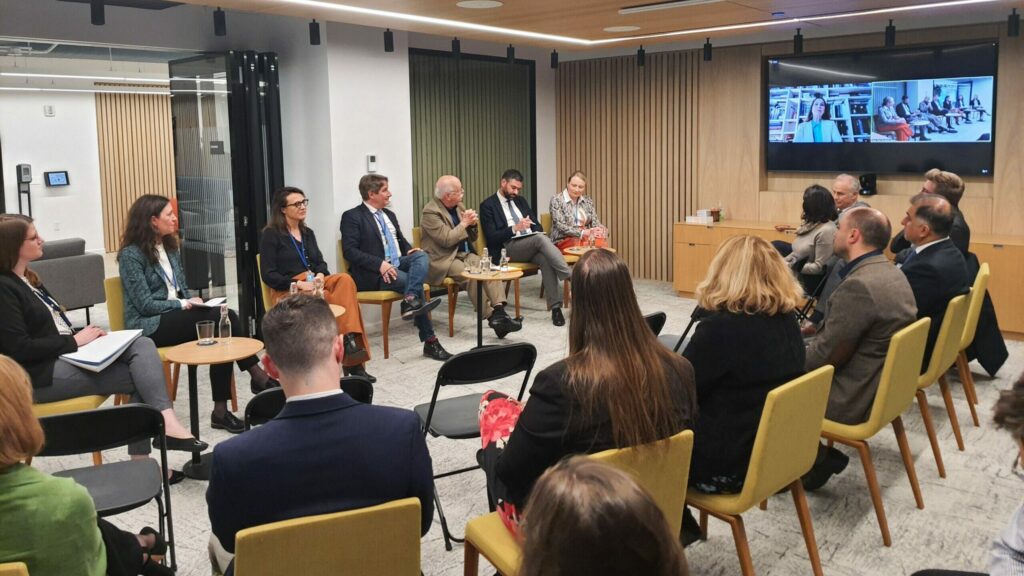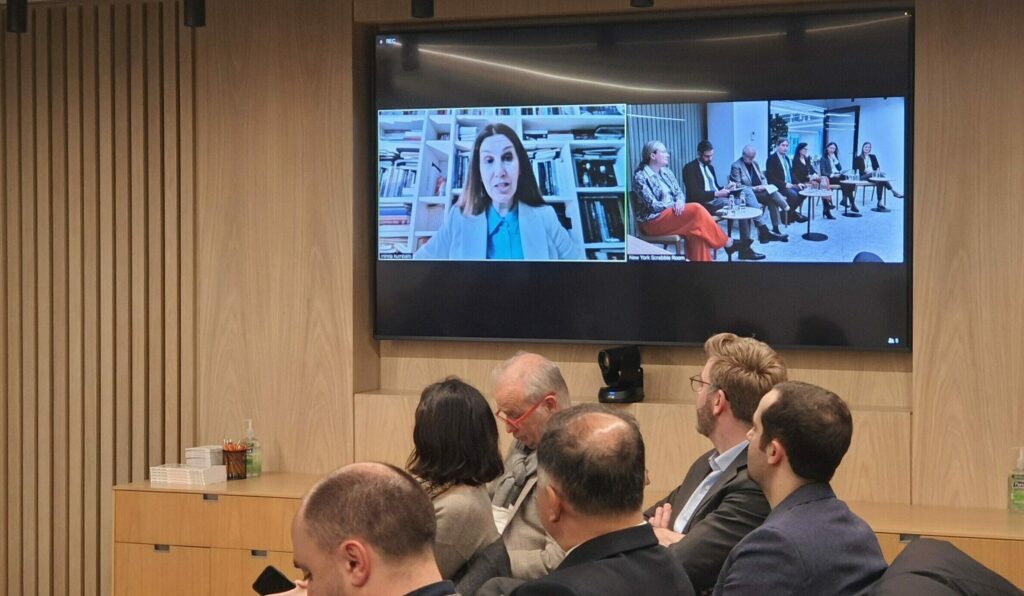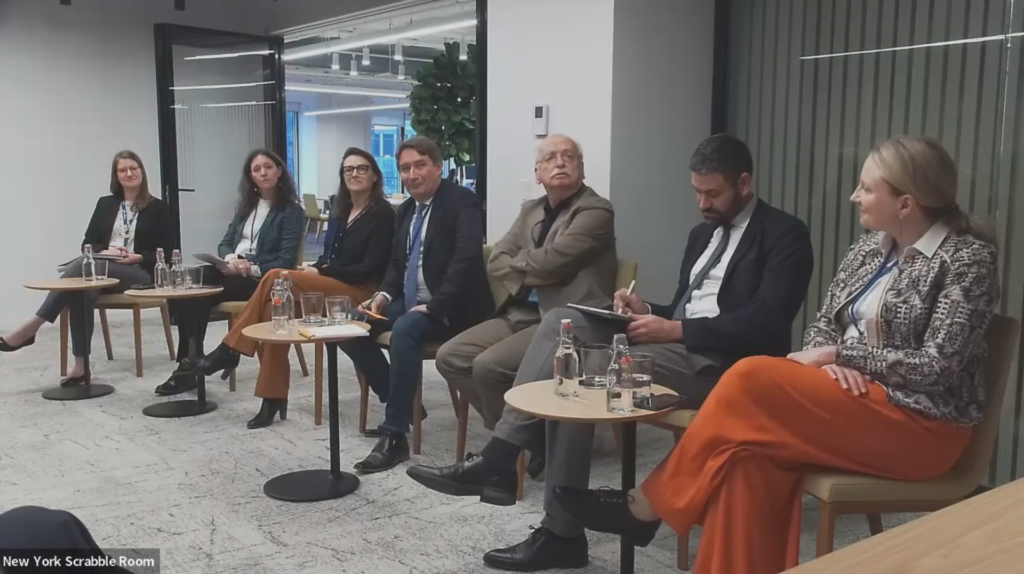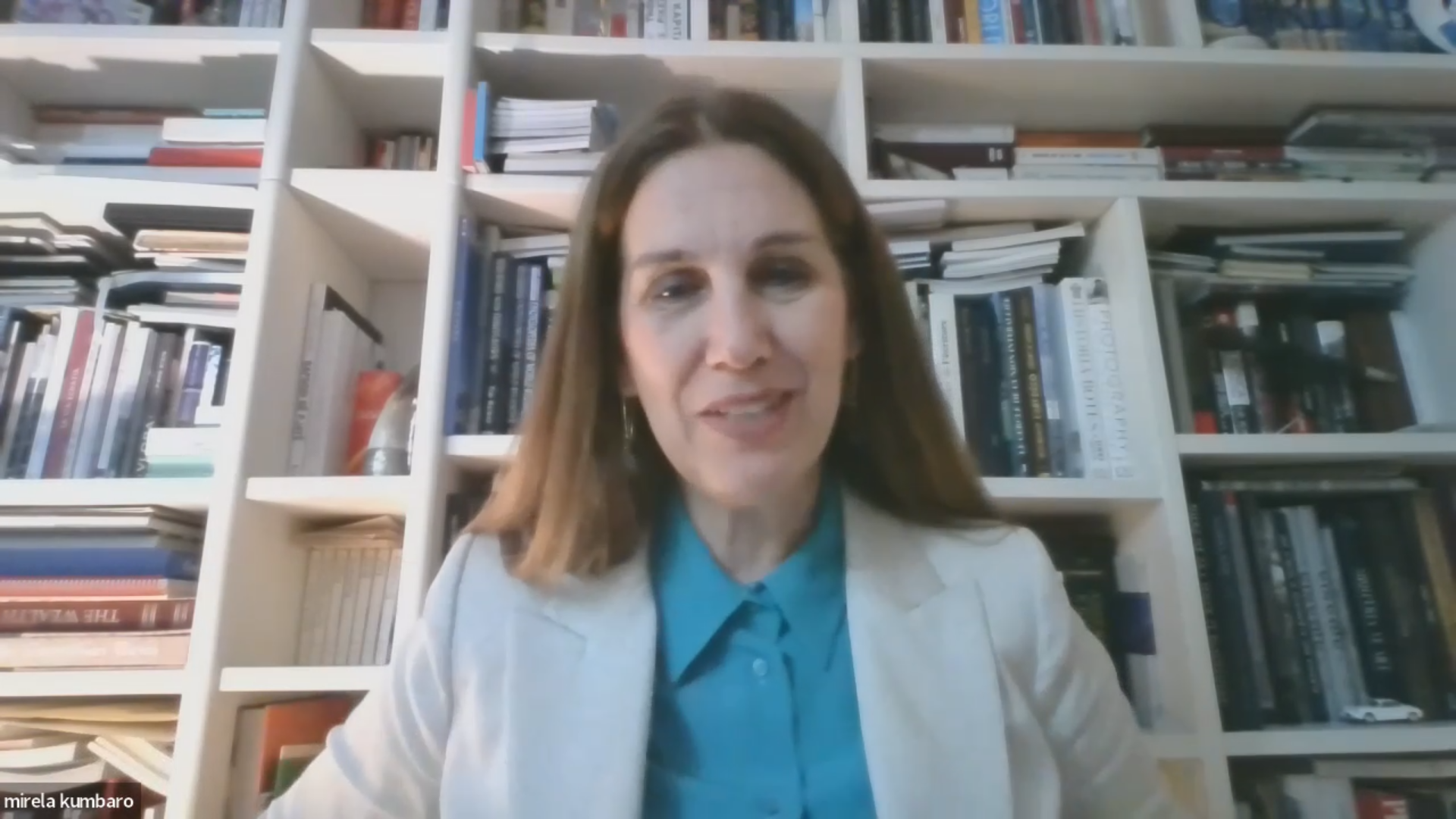2 weeks after the historic declaration of Albania’s Vjosa River as a national park by the Albanian government, The Bridge Tank and Initiatives for the Future of Great River had the honour of welcoming Mirela Kumbaro Furxhi, Minister of Tourism and Environment, Republic of Albania, on the panel of our side event on hydro-diplomacy during the UN 2023 Water Conference, on March 23rd, 2023.
This was an opportunity for the two organisations, represented by their respective presidents Joel Ruet, Economist at the Institute for Interdisciplinary Innovation of the French National Center for Scientific Research & Erik Orsenna, Academician at the Académie française, to collect insights about the particular case of the Vjosa River – the first wild river national park in Europe.
The session titled “Towards an inclusive, pre-emptive, and positive hydro-diplomacy” aimed to expand the discussion and practice of hydro-diplomacy to a larger audience and range of stakeholders. In this context of a broadened and renewed hydro-diplomacy, Albania’s unique experience with the Vjosa River is a case deserving particular consideration. Introducing Minister Kumbaro Furxhi to the side event’s audience, Joel Ruet shared his own personal experience with the climatic context in Albania, which he got to experience in September 2022, when within a span of 3 weeks, he saw the weather change drastically, going from droughts to heavy rains.
Before giving the floor to Minister Kumbaro Furxhi, Erik Orsenna shared his own long-standing commitment to the future great rivers, looking at them not as a commodity, like water, but as live beings and characters whose story can be told.

Albania’s approach
After thanking the panel for allowing her to speak in French, a language she cherishes, Minister Kumbaro Furxhi began by presenting the unusual combination that constitutes her ministerial portfolio, combining tourism and the environment. Although this association may seem hostile, it is in fact the result of a desire on the part of the Albanian government to avoid this hostility and to find a balance between the two sectors that constitute two priorities for Albania: the development of tourism, i.e. a responsible and sustainable tourism, and the protection of the environment.
Despite being a small country, Albania is very rich in hills, mountains, forests and rivers with a coastline along the Adriatic Sea stretching between Montenegro and Greece. The role of rivers is very special for Albania, with 100% of its electricity production coming from hydroelectric plants. This dependence on hydroelectric power plants also makes the country dependent on the capriciousness of the weather, as the Minister pointed out. Although Albania is not a major polluter, the country is also a victim of the effects of climate change, alternating between long periods of drought and the risk of flooding when rainfall is too heavy.
The Vjosa River – a treasure to preserve
The wealth of its water resources makes Albania the second richest country in Europe in terms of water resources per capita. Among these resources is the last wild river in Europe: the Vjosa River. The fact that the Vjosa is the last wild river in Europe however raises many questions, the Minister noted, in particular as to why rivers have disappeared in their wild state across Europe. Such a reflection would help explain the international interest and pressure over the past 10 years to save Europe’s last wild river.
According to Minister Kumbaro Furxhi, this is a matter of maturity and empowerment of civil society, environmental NGOs, local communities, and politicians. This maturation resulted in the Albanian government’s decision in 2021 to protect the last wild river in Europe.
The Vjosa River rises in the Pindos mountain range in Greece. It flows through Greece for 70 kilometres before crossing the border into Albania. It then flows for another 200 kilometres through the country before flowing into the Adriatic Sea. The Vjosa has three tributaries in southern Albania – an area that constitutes a living natural laboratory with a rich ecosystem. It is not only a laboratory of flora and fauna “but also of the human soul”, of the Albanians who have inhabited this region for centuries and who are part of this biodiversity, the minister insisted.


The idea of combining sustainable development and responsible tourism, which “would not be just sea and sand”, but rather a discovery of nature and the richness of the surrounding area, aimed at safeguarding it and benefiting the local communities and economy, was born from this perspective. This approach therefore also consists of developing other forms of tourism such as “ecotourism, adventure tourism, mountain hiking, and agrotourism,” a phenomenon that has been growing in Albania, allowing farmers and producers to transform local products into a tourist offer.
To make this possible, Albania has already extended its protected areas from 17% to 21.3% of its territory and committed to reaching 30% by 2030 at the COP15 Biodiversity Summit in Montreal in 2022. According to Mrs Kumbaro Furxhi, this is a courageous and costly commitment, which will not lead to immediate profit, but rather to a more mature long-term vision, preparing the country for the decades and centuries to come.
The recent declaration of the Vjosa River as a national park was the first step of this project. This was achieved in partnership with international NGOs, experts, the International Union for Conservation of Nature (IUCN), and Patagonia, an American company. The second step has already begun, as negotiations with the Greek government hope to expand the park over the border and combine Aóos, the Greek part of the river, and Vjosa on the Albanian side to make it the first transboundary park. The next step will be a common management plan.
As a conclusion, Minister Kumbaro Furxhi extended an invitation to come to Albania to visit the river, as the government, in cooperation with UNESCO, have started preparations to launch the process of inscribing the Vjosa River on UNESCO’s natural world heritage list.
The side event “Towards an inclusive, pre-emptive, and positive hydro-diplomacy” was coorganized by The Bridge Tank, Initiatives for the Future of Great Rivers, in partnership with the French Water Partnership, the Geneva Water Hub, IHE Delft, the International Network of Basin Organizations, the Chair Technology for Change, and APCO Worldwide, who hosted the event.

